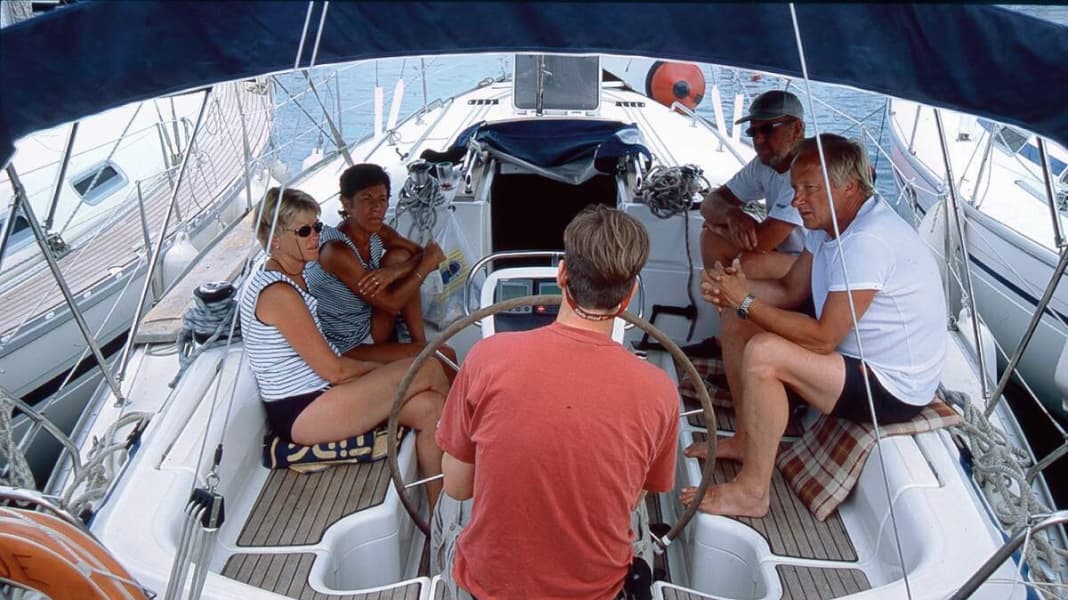
The duty of care required of skippers has increased in the past. Nevertheless, many skippers continue to rely solely on their experience and skills - and therefore expose themselves to a high liability risk.
On the one hand, hull insurers are increasingly trying to take recourse against the person responsible after an accident. Especially if there is a suspicion that the skipper was grossly negligent in causing an accident.
However, the skipper is also at risk from his co-sailors. They can assert claims for damages against him even in the event of slight misbehaviour on his part. It is not uncommon for a court or even the Maritime Authority to have to clarify whether a skipper has actually behaved correctly or not.
Beware of model contracts
One way to at least protect yourself against the legal consequences of an unfortunate trip is a co-sailor agreement. An essential component of such a contract concluded between skipper and crew is the exclusion of liability. In the case of charter trips, the mutual obligations on board and the cost sharing can also be set out in writing.
But be careful. In the past, such an agreement could actually release the skipper from any liability, even if he had undoubtedly acted negligently. Only gross negligence and wilful misconduct were not protected by the form contract. This changed in 2002 in the course of the reform of the law of obligations. The legislator subjected so-called model forms, such as forms for co-sailing agreements, to the same law that applies to general terms and conditions (§§ 305 ff. BGB).
Consequence: Provisions that provide for an exclusion of liability "for damages resulting from injury to life, body or health" in such form contracts are invalid by law (Section 309 (7a) BGB). The same applies to material damage caused by grossly negligent behaviour (Section 309 No. 7 b BGB). Only negligent breaches of duty that do not result in physical injury or damage to health can be excluded.
Unless the skipper makes individual agreements with his co-sailors. The law on general terms and conditions does not apply to these. Such an agreement, in which personal injury due to gross negligence can also be excluded, must be drawn up separately for each trip. This must be done in such a way that the individual character is clear, for example by listing the special circumstances of the intended voyage.
It is therefore essential to avoid repeating text in the sense of a pre-formulation for several identical or similar trips or persons. And above all, never continue to use sample forms such as those provided by YACHT. If you draw up a document by hand, you can best counter the possible objection that it is a form agreement that has been used several times.
Exceptions: A specimen document may be used for several crew members if the trip is undisputedly unique. For example, a long-distance regatta or an extreme trip to the Arctic. Or if the contract is not used more than three times.
The better alternative
Every skipper should think very carefully about signing a disclaimer with their fellow sailors. After all, they are accepting the risk that, in the worst-case scenario, another person may suffer considerable financial losses due to their own fault, which could go as far as their livelihood.
The alternative is Skipper liability policy. Depending on the period of validity, it costs between 70 and 120 euros. More importantly, various providers even cover personal injury caused by gross negligence on the part of the skipper and sometimes even damage to the boat. This makes any co-sailor agreement superfluous.
published in YACHT 15/2005
